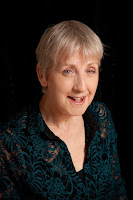"It has motivated me to ditch the car, don the trainers and become a flâneuse myself, wandering the city in which I live but know so little about."
Yvonne Coppard is a writer of children’s fiction, non-fiction for adults and occasional columns and articles in a variety of publications. She is currently a Writing Fellow of the Royal Literary Fund, working with businesses and public service organisations to promote clear, understandable English in written communication. See more on her website.
Trying to describe what this book is and why I loved it will be a challenge. It’s part memoir; part cultural commentary; literary biography and history, underpinned by a skilful evocation of our human need for connection.
The term flâneuse is Elkin’s adaptation from the masculine noun ‘flaneur’: an idle, aimless wanderer. The flâneuse, like her male counterpart, walks the streets with no other purpose than to blend and observe. The seemingly small point about adapting language is actually fundamental to Elkin’s approach; she is a woman reclaiming territory that was traditionally assumed to be exclusively male. Although the term ‘flâneuse’ already existed, the Dictionnaire Vivant de la Langue Francaise defines it as ‘a lounge chair’. Elkin’s perspective is clear: search for images of ‘flâneuse’, she says, and you get: “a drawing of George Sand, a picture of a young woman sitting on a Parisian bench and a few images of outdoor furniture…. Is that some kind of joke? The only kind of curious idling a woman does is lying down?”
Elkin is a native New Yorker with experience of life in Tokyo, Venice, London and Paris, which is now her permanent home. She has negotiated the nuances that must be grappled with in order to make the change from tourist to resident; she understands the difference between living in a community and feeling integrated into it. Elkin’s account is infused with the keen observation and insight that being an outsider affords. She includes slices of the lives of flâneuses who have gone before her: writer Virginia Woolf; artist Sophie Calle; journalist Martha Gellhorn and film-maker Agnes Varda, among others. All of them were keen observers of the environments they moved through and blended into. Their stories are fused with Elkin’s developing insights into her own experience.
“Why do I walk? I walk because I like it. I like the rhythm of it, my shadow always a little ahead of me on the pavement… Walking is mapping with your feet. It helps you piece a city together, connecting up neighbourhoods that might otherwise have remained discrete entities, different planets bound to each other, sustained yet remote.”
Established in Paris, Elkin falls in love and agrees to move with her French boyfriend when he takes a job in Tokyo. Uprooted, displaced and unnurtured, Elkin struggles to connect with her new home and, ultimately, her partner. Her description of the final stages of their soured relationship is powerful.
“Dead words, dead tongue, dead of disuse, my mouth stuck shut… I said in your language, which I have come to speak, ta langue, ta langue dans ma bouche, and you’ve brought me to this place where my new tongue lies flat in my mouth. A crack in the road, the sidewalk blistered, how long has it been since I left New York concrete for Paris cobblestones? Why am I here, where I can’t ask for aspirin, or sleeping pills, where the yogurt aisle is a tofu aisle? I can’t think straight, I can’t make one thought lead to another, I just tell you I hate it and hate it, and I mean you, and before we know it I am breaking things and jumping up and down and screaming at you in your tongue, in my tongue, in my mother tongue. My mother spoiled me, you say. But you have spoiled us. I never thought I’d be here.”
The breadth of Elkin’s sweep across art, literature, history and politics is impressive, signalling its roots in the post-graduate research that led her to write the book, but her own story is the connecting thread that unifies the whole. Ultimately, it is the uplifting and inspirational account of a search for the true self, and the landscape that resonates with the soul. It’s a book that I think will be satisfying to return to again and again over the years, offering something fresh each time. Meanwhile, it has motivated me to ditch the car, don the trainers and become a flâneuse myself, wandering the city in which I live but know so little about.
Flâneuse is published by Chatto and Windus.


1 comment:
I've just remembered that the novelist Michele Roberts wrote about being a flaneuse (though I think she said flaneur) in her memoir, PAPER HOUSES.
Post a Comment